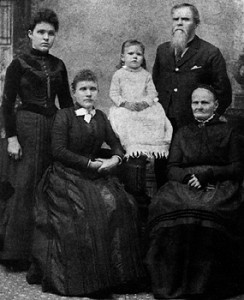 When I started working at NPA there was an article pinned to my desk about the differences in characteristics of people from different generations. Being the only person in the NPA Headquarters office of my generation, it was helpful in understanding the differences between me and my co-workers. For recruiters, it’s important to understand the differences between generations (of job seekers, hiring managers, global recruiters, etc.) and be prepared to answer questions and tailor messages accordingly. The hiring manager might have a preference so the more you know, the better chance you have at making a successful placement. Below I’ve outlined some of the characteristics of each generation:
When I started working at NPA there was an article pinned to my desk about the differences in characteristics of people from different generations. Being the only person in the NPA Headquarters office of my generation, it was helpful in understanding the differences between me and my co-workers. For recruiters, it’s important to understand the differences between generations (of job seekers, hiring managers, global recruiters, etc.) and be prepared to answer questions and tailor messages accordingly. The hiring manager might have a preference so the more you know, the better chance you have at making a successful placement. Below I’ve outlined some of the characteristics of each generation:
Traditionalists (born between 1900 – 1945)
- Have a strong work ethic
- Are respectful of authority
- Value work and their job
- Place duty before pleasure
- Are loyal
- Are patient
- May have a hard time accepting changes in technology
- Prefer a command and control style of leadership
- Rarely say no
Baby Boomers (born between 1946 – 1964)
- Live to work
- Invented the 60-hour work week
- Are loyal
- Are extremely competitive in work and life
- Look for leadership
- Sense of who they are is deeply connected to their career and achievements
- Still have the mentality that a job can be for life
- Have some trouble with change
Genxers (born between 1965-1980)
- Strive for a work-life balance
- Tend to be less loyal than Baby Boomers
- Are technology savvy
- Crave feedback
- Are independent and resourceful
- Are entrepreneurial
- Want to be kept busy with challenging work
- Look at a job as a contract
Millennials (born between 1981-1999)
- Are technology savvy
- Are the digital generation
- Prefer a team based environment
- Are collaborative
- Relate well to Traditionalists
- Are energetic
Understanding the differences between generations will give you a better idea of some of the things you can expect from a job seeker of a particular generation. These characteristics will help you in working in a global recruiting network as well. Recruiters of all ages are looking to make money and work together to be successful. Part of that success may stem from your understanding of how to work with a recruiter 20 years older or younger than you.
What is your experience in working with a recruiter or job seeker of a different generation than your own? Do you find the characteristics above to be true?